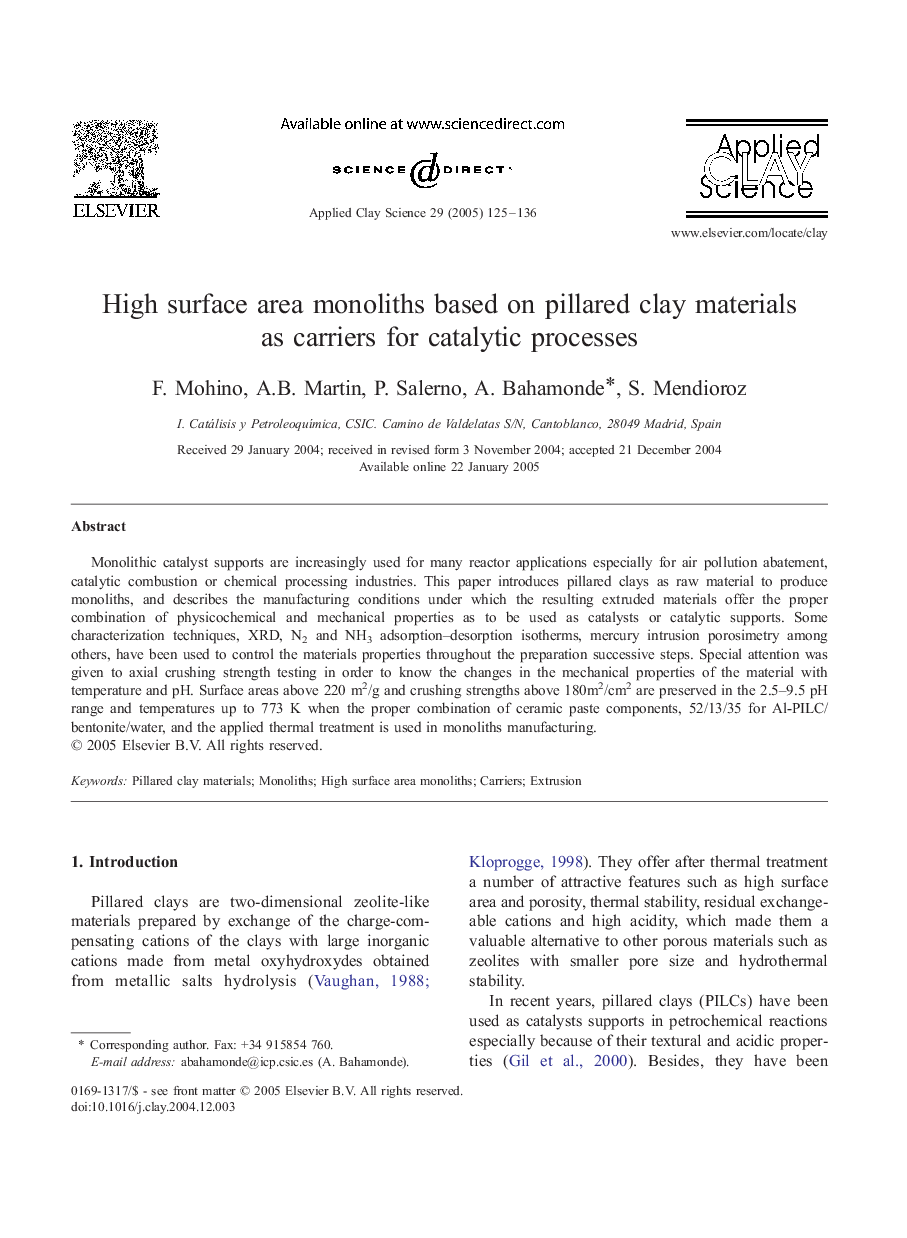| Article ID | Journal | Published Year | Pages | File Type |
|---|---|---|---|---|
| 10676996 | Applied Clay Science | 2005 | 12 Pages |
Abstract
Monolithic catalyst supports are increasingly used for many reactor applications especially for air pollution abatement, catalytic combustion or chemical processing industries. This paper introduces pillared clays as raw material to produce monoliths, and describes the manufacturing conditions under which the resulting extruded materials offer the proper combination of physicochemical and mechanical properties as to be used as catalysts or catalytic supports. Some characterization techniques, XRD, N2 and NH3 adsorption-desorption isotherms, mercury intrusion porosimetry among others, have been used to control the materials properties throughout the preparation successive steps. Special attention was given to axial crushing strength testing in order to know the changes in the mechanical properties of the material with temperature and pH. Surface areas above 220 m2/g and crushing strengths above 180m2/cm2 are preserved in the 2.5-9.5 pH range and temperatures up to 773 K when the proper combination of ceramic paste components, 52/13/35 for Al-PILC/bentonite/water, and the applied thermal treatment is used in monoliths manufacturing.
Related Topics
Physical Sciences and Engineering
Earth and Planetary Sciences
Geochemistry and Petrology
Authors
F. Mohino, A.B. Martin, P. Salerno, A. Bahamonde, S. Mendioroz,
